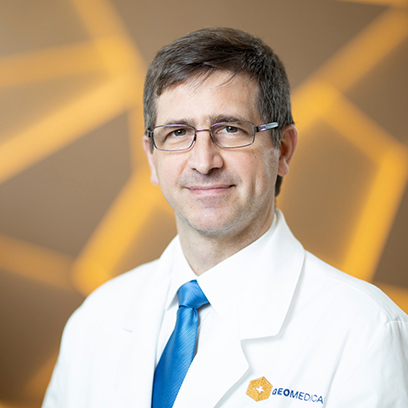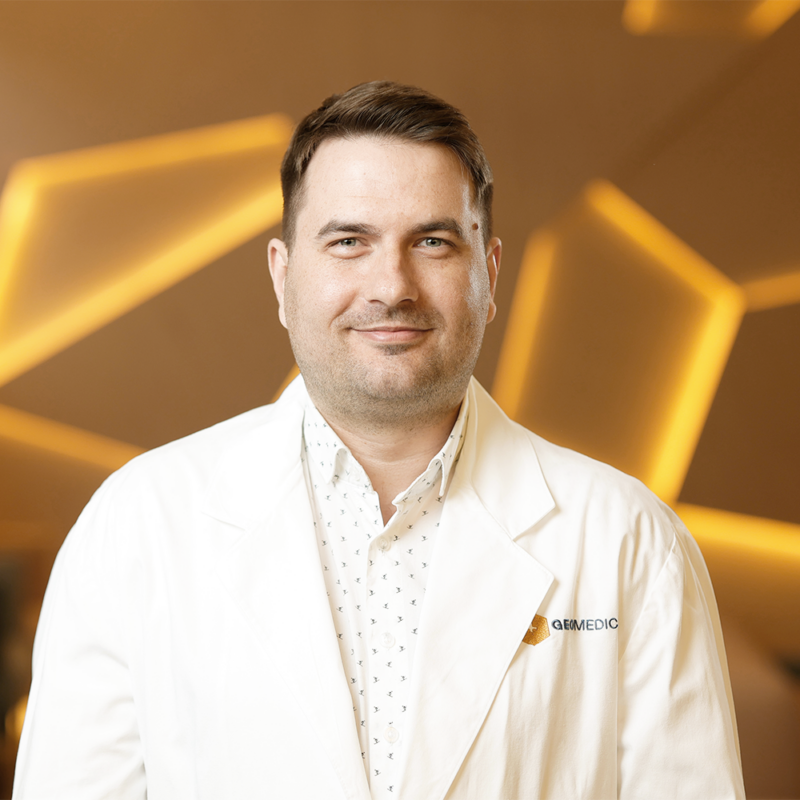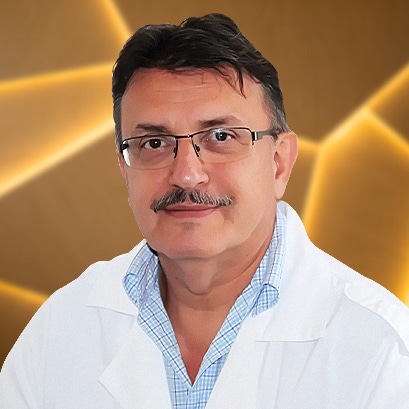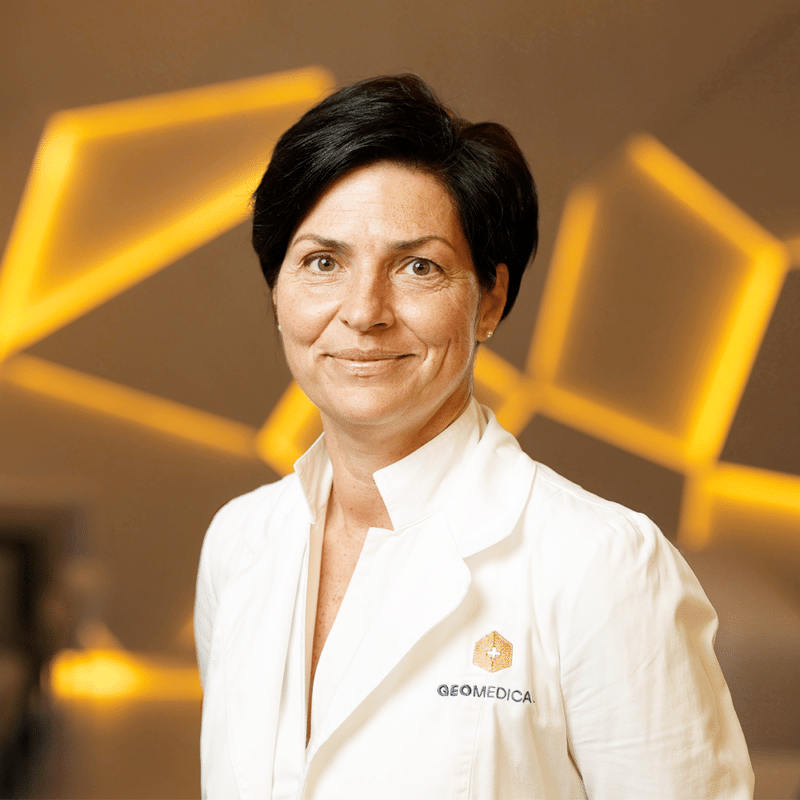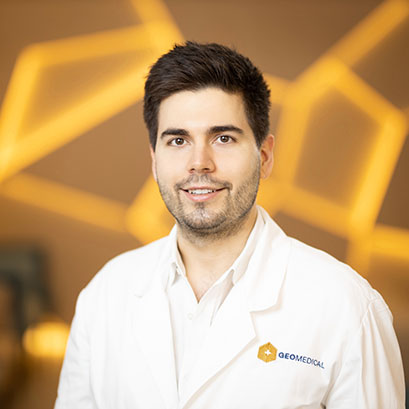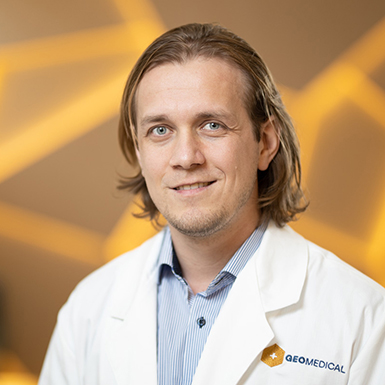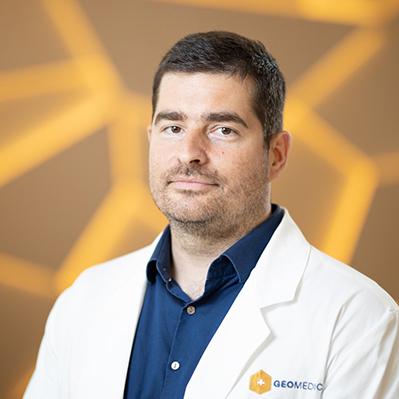
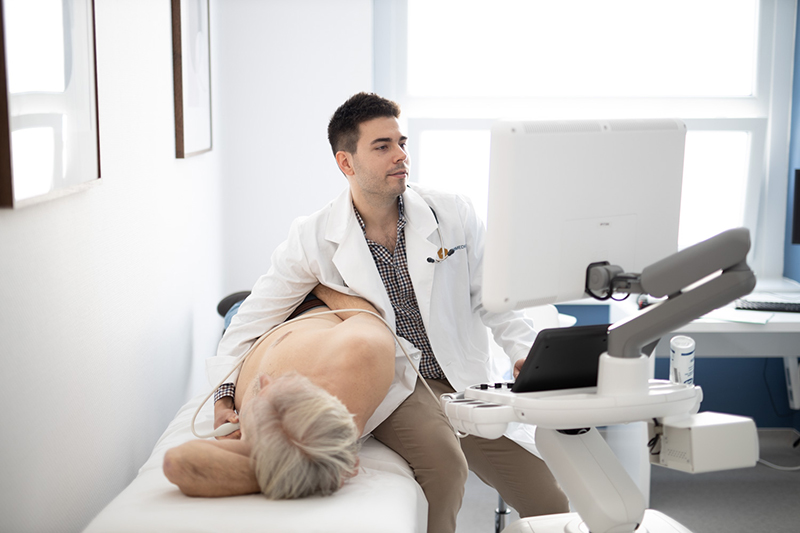
What does
Cardiology deal with?
Cardiology deals with cardiovascular diseases. This includes conditions caused by coronary artery atherosclerosis, blood pressure problems (low or high), various heart rhythm disorders, inflammatory heart diseases, valve defects, and heart failure.
In our modern, stressful world, unhealthy lifestyles, smoking, and sedentary habits lead to the increasing and earlier onset of coronary artery atherosclerosis, which can later cause heart attacks. Since this disease is a leading cause of death both globally and in Hungary, early detection and professional long-term treatment are of exceptional importance.

When should you visit a cardiologist?
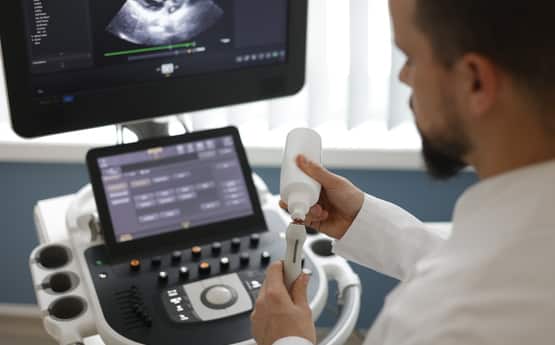
How does a cardiological examination proceed?
A cardiological examination always begins with a thorough inquiry into the patient’s symptoms. If you are visiting us for blood pressure problems, it is advisable to keep a blood pressure diary 1-2 weeks before the examination (record measurements taken in the morning, noon, and evening in a calm, seated position). The specialist will then inquire about previous illnesses, hospital treatments, review the medications used so far, and examine available previous documentation.
Afterward, blood pressure and pulse are measured using an automatic blood pressure monitor.
This is followed by a detailed physical examination. Our specialist assesses the condition of the skin for signs indicating possible circulatory problems, such as lower leg edema. After this, the heart sounds and lung condition are evaluated by auscultation with a stethoscope. Finally, by palpating the abdomen, the size of the internal organs (liver, spleen) is assessed. The examination is completely painless. There is no need to come on an empty stomach for the examination. It is important to bring all previous documentation and a list of current medications.
An ECG provides numerous important insights into the heart’s electrical activity. During the examination, electrodes are placed on various points of the chest and limbs (wrists and ankles) while the upper body is exposed and the patient is lying down. With relaxed breathing, the registration is completed within a few seconds and printed on paper. A description issued by the specialist accompanies this.
A resting ECG is not only necessary during cardiological examinations but also before planned surgeries and during pregnancy care.
Performing a resting ECG is completely painless.
An echocardiogram is an imaging procedure that creates a moving image of the heart and surrounding large arteries. The examination provides a wealth of important information about the heart’s condition, including the sizes of different heart chambers and large arteries, flow conditions, valve functions, movements of specific heart parts, the condition of the pericardium and the amount of fluid within it, as well as overall pump function. After a heart attack, the extent of the damaged area can also be assessed.
The echocardiogram is a completely painless examination. It has no known harmful effects on the human body.
A stress test observes how the heart behaves under increased demand. The examination provides useful information about possible coronary artery stenoses, as the heart cannot adequately adapt to increased stress. This is visible on the recorded ECG in the form of various signals.
During the examination, similar to the resting ECG, electrodes are placed on the patient’s chest, and a blood pressure cuff is placed on the arm. The patient must cycle against gradually increasing resistance on a stationary bike. As the load increases, the heart works harder, the pulse speeds up, and blood pressure rises. All of these are recorded using computer software. The examination continues until the patient reaches the target pulse. If any symptoms occur during the exercise, the load is stopped immediately. After cycling is finished, the patient is observed until their resting pulse is reached.
The examination is completely painless, though mild discomfort from physical activity may occur. It is recommended to wear loose clothing suitable for cycling. Special sports shoes are not necessary.
Pacemakers implanted for various reasons need to be checked every six months. The data recorded in the past period provide numerous useful insights, and necessary adjustments can be programmed at this time. During the examination, all operations can be performed using a special reading head placed over the pacemaker with the help of a computer.
The procedure is completely painless.
Our Special Services
With the proliferation of smart devices today, we have the opportunity to monitor our daily activities or even our heart’s functioning. The latest smart devices can inform us about our heart’s electrical activity beat by beat, similar to a traditional ECG examination. If your smart device indicates a heart rhythm disorder or deviation, it is advisable to consult a cardiologist, as early detection of certain rhythm disorders (e.g., atrial fibrillation) can prevent the development of more serious diseases. If you bring us the “questionable problematic” recording on your device or in printed form, we can determine whether further examinations (e.g., echocardiogram, more precise ECG monitoring) are necessary or if it is just a simple “benign” deviation that can be managed with lifestyle changes if needed.
In Hungary, cardiovascular diseases (e.g., myocardial infarction, cerebral infarction, lower limb arterial disease leading to amputation) are known as leading causes of death. Their development is attributed to so-called risk factors, some of which an individual cannot influence (genetic predisposition, age), while others are modifiable through a healthy lifestyle or possibly medication therapy. Based on decades of research, altering or properly managing the following risk factors can reduce the number of cardiovascular diseases:
Sedentary lifestyle
Overweight, central obesity
Inadequate (quantity and quality) nutrition
Smoking
High serum cholesterol levels
Diabetes
High blood pressure
Multiple professions (dietitian, physiotherapist, internist, angiologist, cardiologist, diabetologist) need to collaborate for successful lifestyle changes and, if necessary, the adjustment of any emerging medication therapy.
For effective lifestyle changes, it is important to uncover an individual’s past experiences, knowledge, and daily circumstances. Personalized consultations are key to success.
Professionally Recommended Cardiovascular Risk Assessment:
– Every man over 40 and every woman over 50
– Anyone with a family history of cardiovascular events (e.g., myocardial infarction) before the age of 55
– Anyone with any risk factors (e.g., high cholesterol levels, high blood pressure)
At our clinic, after a personalized cardiovascular risk assessment, we provide the opportunity to reduce the necessary risk factors with the involvement of a dietitian and physiotherapist and, if needed, set up optimal medication therapy, thereby reducing the risk of developing a potential cardiovascular event.
Heart rhythm disorders occur when the heart’s normal electrical impulse-generating system (the sinoatrial node) and conduction system are impaired. This can result in abnormally low or excessively fast heart rates (pulse rate). Abnormal electrical areas can also be activated, leading to premature beats due to impulses arriving earlier than normal. Patients typically feel forceful heartbeats or skipped beats, often accompanied by dizziness, shortness of breath, and chest pain. The blood pressure monitor shows low, high, or irregular pulse rates. Various rhythm disorders may lie behind these symptoms and deviations, requiring further investigation. With pacemaker implantation, catheter-based procedures, or medication therapy, heart rhythm disorders are treatable or even completely curable conditions.
If you suspect a heart rhythm disorder, please contact us confidently so that our specialized specialists (electrophysiologists) can make an accurate diagnosis and select the most advanced therapy suitable for you.
A myocardial infarction is caused by a blocked or critically narrowed coronary artery, which is opened or made passable again in hospital conditions, usually by implanting a metal mesh called a stent. Once the heart muscle receives an adequate amount of blood again, patients quickly become symptom-free and can leave the hospital after a few days of observation.
Upon returning home, patients have countless questions:
I had no problems before; why do I suddenly need so many medications?
What are these medications for?
My cholesterol level isn’t even high, yet they prescribed medication for it?
How long do I need to take blood thinners?
When can they remove my tooth?
When can I exercise again?
How much can I move?
How can I prevent another heart attack?
What symptoms should prompt me to visit a doctor again?
At our institute, we provide comprehensive post-myocardial infarction care, during which our patients receive answers to questions like the above. Our cardiology specialists, experienced in catheterization and myocardial infarction treatment, take care of them, and with the involvement of a dietitian and physiotherapist, we help establish a healthy lifestyle. This also aids our patients in returning to work and daily life.
Contact Us Confidently!
Prices in Cardiology
Our Doctors in Cardiology




